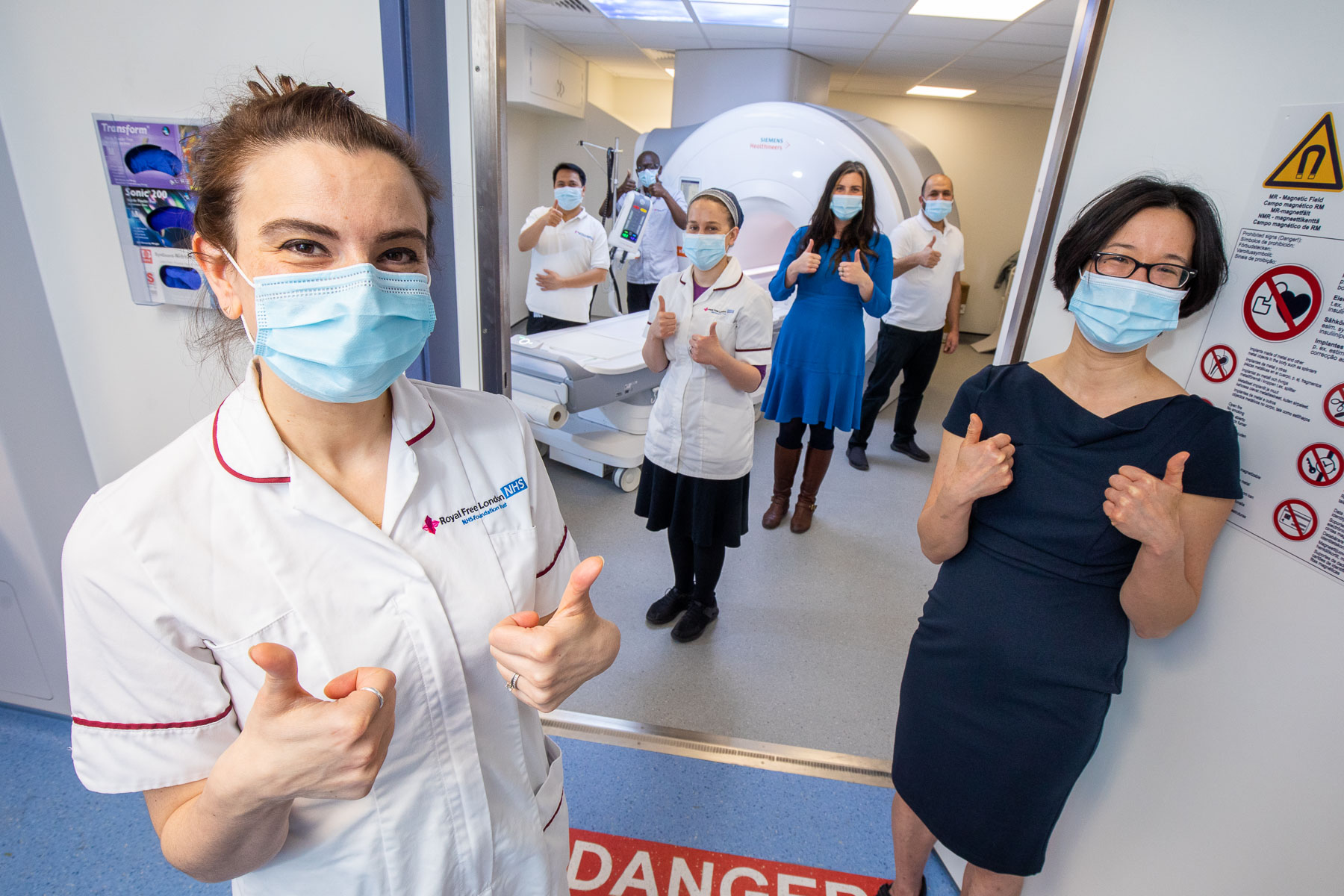
Three brand new MRI scanners have been installed at the Royal Free Hospital, as part of a project to improve the quality of medical imaging at the trust. These machines bring us the latest, state-of-the-art technology, and will help to ensure that our patients receive the best care possible.
The new equipment brings a range of benefits to the department. We have replaced two older MRI machines with three new ones, increasing the department’s scanning capacity and ensuring that patients can be seen sooner. The new equipment offers reduced scanning times, increased image quality, and a range of advanced scanning techniques.
The redevelopment is allowing our MRI team to provide an improved patient experience. MRI superintendent Magda Barrow said: “All our MRI scanners at the Royal Free Hospital are now wider and much lighter and brighter than before – which helps patients feel more at ease during their scan. The scanners also have improved comfort kits helping us to keep patients more comfortable whilst with us.”
She added: “Staff have had the opportunity to receive training on the latest technological advances in MRI, particularly with the addition of a 3 Tesla scanner to our department.”
The 3 Tesla scanner is a more powerful and more efficient MRI machine, which allows each scan to be completed in a shorter time. It also produces more detailed images, aiding in the diagnosis of a range of different conditions.
The RFL imaging upgrade project began in 2019, and alongside the new MRI scanners has brought upgraded x-ray equipment and new nuclear medicine gamma cameras to the Royal Free Hospital. Work has also begun to replace our interventional radiology and cardiac catheter labs.
This work was interrupted temporarily in spring last year, when the challenges of COVID-19 meant that our teams had to put their work on hold. This meant that our project team had to adapt to a range of new challenges, including new infection control requirements and delays in the supply chain, as well as pressure from other areas of our hospital.
Brian Pratt, director of capital projects, said: “The whole programme team worked incredibly hard to overcome the challenges of lockdown, and demonstrated their adaptability to whatever the situation required. These MRI units are essential for providing world class care to our patients and I'm very proud that we were able to keep the programme running over the last year."
Imaging programme board director Alex Pinches added: “One of the most striking things about this project has been the positive attitude of all involved. With the disruption of the pandemic, we have had to face some of the biggest challenges of our careers - but everyone has done so with a smile. The positivity has paid off, and staff and patients will now be able to reap the rewards.”
 Translate
Translate
